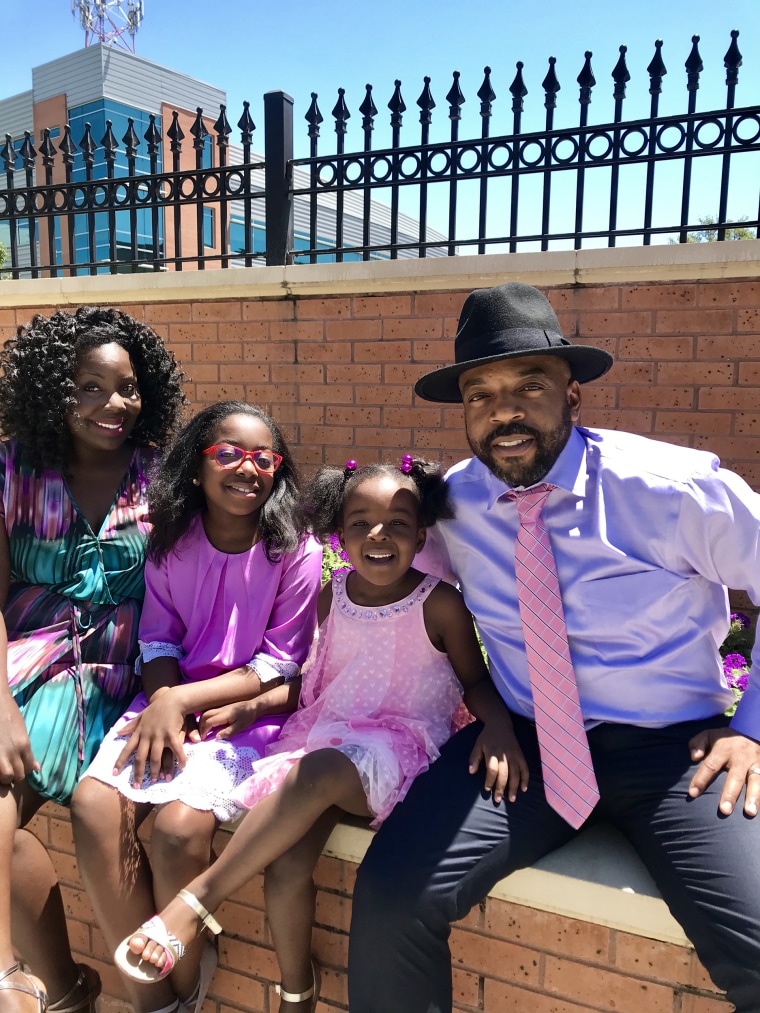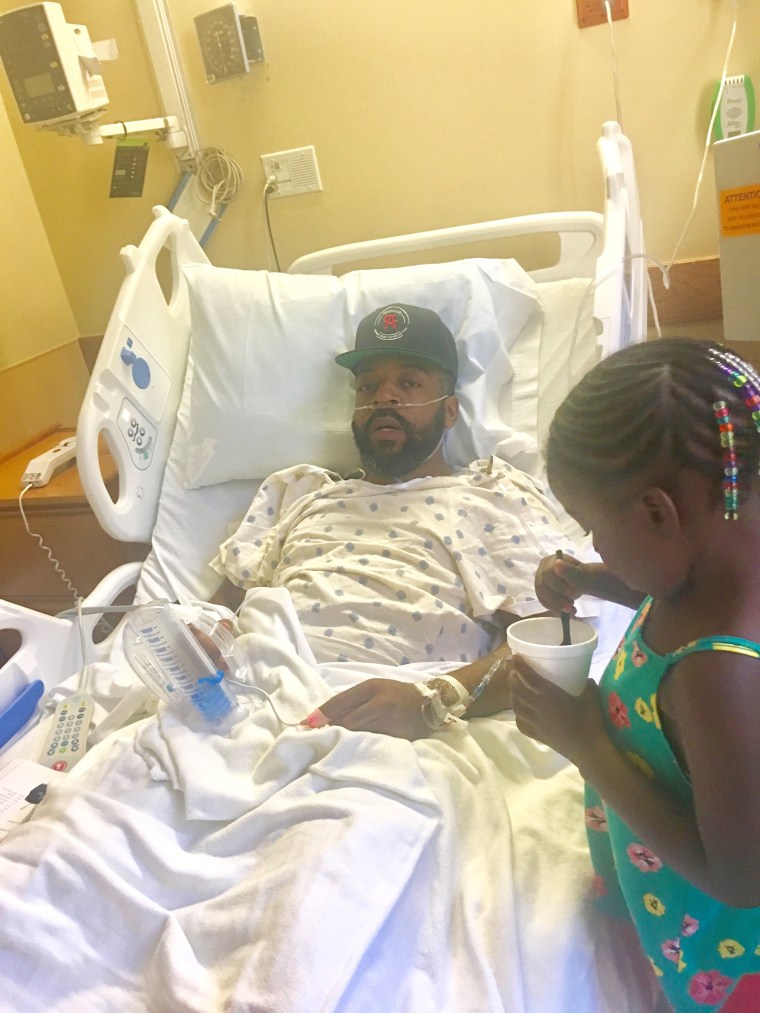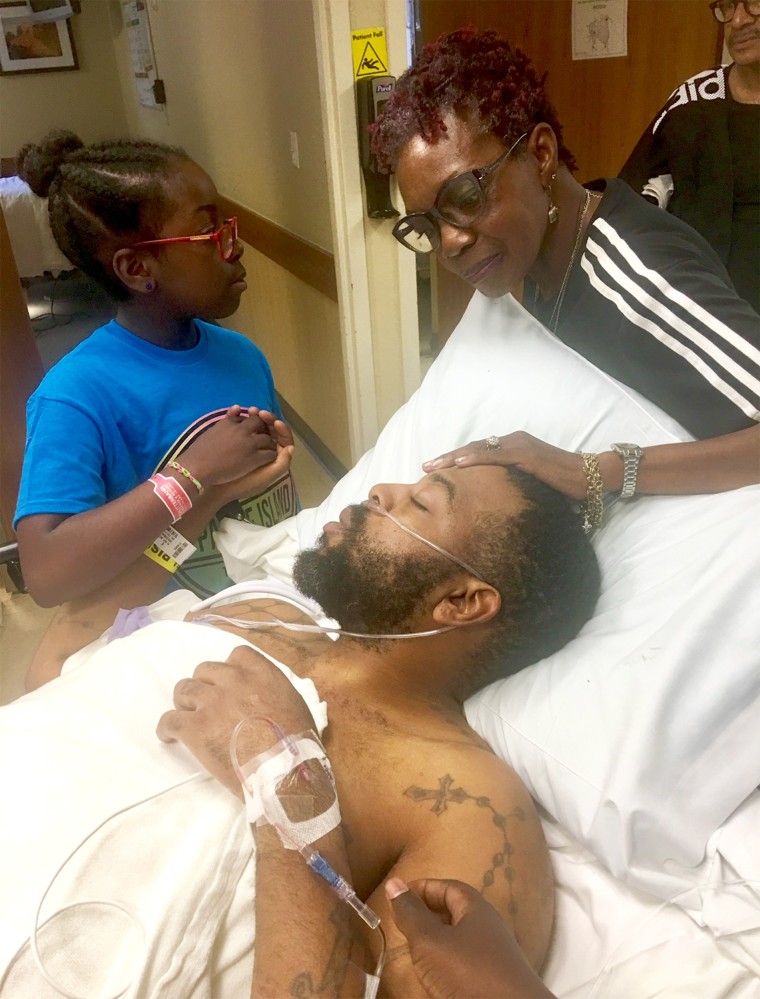During a routine physical exam in 2018, Mical Roy’s doctor ran a blood test for prostate cancer based on instinct. At the time, Roy was just 37, younger than the average age recommended for screening for prostate cancer. Still, he’s grateful that his doctor did — it led to the early detection of his stage 2 prostate cancer.

“I always call her my guardian angel to this day. I asked her, ‘What made you do that?’” Roy, 40, a credit recovery professional in a school district in Austin, recalled to TODAY. “She told me that she’s been seeing a trend in the last few years that younger people are being diagnosed with prostate cancer and that Black men especially are at a much greater risk of dying from prostate cancer and experience a much more harsh reality.”
Regular examinations and prostate health
Roy and his family had recently moved to Austin from Houston and he and his wife were looking for a general practitioner. When he went for his first visit, the doctor ran blood tests including one for prostate specific antigen. Elevated levels can indicate prostate cancer. When the results returned, his PSA was higher than average. She first tried treating him with antibiotics.
“This is the first time ever hearing about anything having to do with PSA, prostate cancer, any of that,” Roy said. “It was not on my radar at all."

After a month, his levels weren’t lower. In fact, they had increased so his doctor recommended he visit a urologist. In November 2018, Roy learned that he stage 2 aggressive prostate cancer. He was stunned. At the time, he was unaware that he had a family history of it.
“I honestly felt stuck in that moment, and in a lot of ways still. It was just like pure shock because it’s not like I can mentally prepare for that. I had perfectly amazing health,” Roy said. “It was like, ‘Wow this is intense.’”
Doctors performed a radical prostatectomy, a robotic procedure to remove his prostate and all the cancer. Roy didn’t need to follow up with chemotherapy or radiation.
“I am 100% disease-free and the typical rule of thumb is to have your PSAs checked every six months,” he said. “I do every three months to stay ahead.”
Roy later learned that relatives on his father's side of the family had prostate cancer.
Prostate cancer
Prostate cancer is “very common” in older men. But there are some groups of younger men at higher risk.
“There are a certain subset of people that actually are at increased risk of being diagnosed and this includes people that have a first-degree relative, so a family history of prostate cancer,” Dr. Clayton Lau, a urologic surgeon at City of Hope Comprehensive Cancer Center in Duarte, California, who did not treat Roy, told TODAY. “No. 2 would be African Americans are more likely to be diagnosed with prostate cancer. Those are the biggest risk factors.”

Prostate cancer is “silent” and many people aren’t aware they have it until “sometimes it’s too late.” Advanced prostate cancer can cause back or bone pain or blood in urine.
“Most people are asymptomatic,” Lau said.
That’s why routine screenings, such as blood tests for PSA level and digital rectal exams remain important.
“Men should not be worried or too scared to go to the physician,” Lau said. “It’s important to get that early diagnosis because you can develop some pretty significant diseases that are almost preventable or controllable.”
The U.S. Preventive Services Task Force recommends men between the ages of 55 and 69 talk to their doctors about being screened for prostate cancer. The American Cancer Society recommends people at higher risk (like African Americans and men who have a family history of prostate cancer) should talk to their health care provider about being screened starting at age 45, or age 40 for some men. A lot of men fear screening because of the exam.
“Men have never been examined like that and they get a little worried,” Lau said. “It’s a pretty simple process.”
Undergoing screening makes it more likely for men to be diagnosed with prostate cancer at an earlier stage, leading to a better chance of recovery.
“It’s still either the second or third leading cause of cancer-related deaths in a year,” Lau said. “But one of the things about prostate cancer is there are a lot of good treatments for it and also if they have it caught earlier, patients do very well.”
Increasing awareness
Since his surgery in 2018, Roy has been cancer-free and encouraging other men to visit their doctors regularly. He’s hoping to break the taboo associated with prostate cancer and spoke about his experience for Merck’s Your Cancer Story project.
“A lot of men just look at (prostate cancer) as something that’s challenging their manhood,” he said. “I’ve never felt that shame … I want people to know about prostate cancer and have no shame.”

But he understands that it can be tough to overcome. He has a twin brother and older brother who he has encouraged to undergo testing for prostate cancer, but still neither have gone.
“There are so many men just like that,” Roy said. “Because I got checked, because I did it earlier things have fared a little better for me than other prostate cancer patients. I’m just telling my story. I’m literally thriving … that story is super impactful.”
CORRECTION (June 15, 2021 10:09 a.m.): An earlier version of this article misstated that prostate cancer ran on both sides of Roy's family. Cancer runs on both sides of the family and prostate cancer is common just on his father's side.
